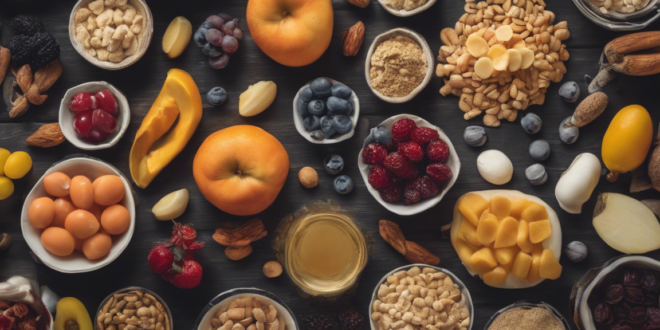Nutritional Challenges in Parkinson’s Disease: A Comprehensive Guide to Dietary Management and Health
Parkinson’s disease presents a complex array of nutritional challenges that extend far beyond traditional dietary considerations. As a progressive neurological disorder, it impacts not only a patient’s motor functions but also creates significant nutritional hurdles that require comprehensive understanding and strategic management.
Understanding Nutritional Complications in Parkinson’s Disease
Patients with Parkinson’s disease frequently encounter multiple nutritional challenges that can substantially impact their overall health and quality of life. These complications arise from a combination of neurological symptoms, medication interactions, and metabolic changes associated with the disease progression.
Key Nutritional Issues Facing Parkinson’s Patients
1. Malnutrition and Weight Loss
Parkinson’s disease can lead to significant malnutrition due to various factors, including reduced appetite, difficulty swallowing, and altered metabolism. Patients often experience unintended weight loss, which can further compromise their health and immune function.
2. Medication-Induced Nutritional Interactions
Many Parkinson’s medications interact complexly with nutritional intake. Levodopa, a primary treatment, can be significantly affected by protein consumption, potentially reducing its absorption and effectiveness. Patients must carefully time medication intake and protein consumption to optimize treatment outcomes.
Comprehensive Nutritional Strategies
Developing a targeted nutritional approach requires a multidisciplinary strategy involving neurologists, nutritionists, and specialized healthcare professionals. The goal is to create personalized nutrition plans that address individual patient needs while supporting overall health and medication effectiveness.
Dietary Recommendations for Parkinson’s Patients
1. Protein Management
Careful protein intake timing is crucial. Patients are often advised to consume most protein later in the day, allowing morning and early afternoon medication absorption to remain uncompromised. This strategic approach helps maintain medication efficacy while ensuring adequate nutritional intake.
2. Antioxidant-Rich Nutrition
Incorporating foods high in antioxidants can potentially help manage oxidative stress associated with Parkinson’s disease. Berries, leafy green vegetables, and foods rich in vitamins C and E are particularly beneficial in supporting neurological health.
Addressing Specific Nutritional Challenges
Swallowing Difficulties (Dysphagia)
Many Parkinson’s patients experience swallowing challenges that can significantly impact nutritional intake. Strategies include:
– Preparing soft, easily consumable foods
– Using thickening agents for liquids
– Implementing specialized eating techniques
– Consulting speech and swallowing therapists for personalized interventions
Hydration and Digestive Health
Maintaining proper hydration and digestive function is critical. Constipation is a common issue in Parkinson’s disease, necessitating high-fiber dietary interventions and adequate fluid intake. Patients should focus on:
– Consuming water-rich foods
– Using fiber supplements
– Engaging in gentle physical activity to support digestive motility
Nutritional Supplementation Considerations
While whole food nutrition remains paramount, targeted supplementation can address specific deficiencies. Common supplements include:
– Vitamin D
– Vitamin B12
– Omega-3 fatty acids
– Coenzyme Q10
Patients should always consult healthcare professionals before initiating any supplementation regimen to ensure safety and compatibility with existing treatments.
Mental Health and Nutrition
Nutritional strategies extend beyond physical health, playing a crucial role in mental well-being. Certain nutrients can support cognitive function and potentially mitigate depression and anxiety associated with Parkinson’s disease. A balanced diet rich in complex carbohydrates, lean proteins, and healthy fats can contribute to improved mood and mental resilience.
Professional Guidance and Ongoing Management
Regular consultations with healthcare professionals specializing in Parkinson’s disease nutrition are essential. These experts can:
– Develop personalized nutrition plans
– Monitor nutritional status
– Adjust strategies as the disease progresses
– Provide ongoing support and education
Conclusion: A Holistic Approach to Nutritional Management
Managing nutrition in Parkinson’s disease requires a comprehensive, individualized approach. By understanding the intricate relationship between diet, medication, and neurological health, patients can develop effective strategies to support their overall well-being.
Each patient’s journey is unique, and nutritional management should be flexible, adaptive, and centered on improving quality of life. With proper guidance, strategic planning, and a holistic perspective, individuals with Parkinson’s disease can effectively navigate nutritional challenges and maintain optimal health.
 Good Calories Guide GoodCalories Guide focuses on nutrition, healthy eating, and overall wellness. The site offers practical insights into evidence-based dietary practices, including tips for specific lifestyles such as veganism, keto, and family-friendly meal planning. It also addresses unique nutritional needs for individuals with conditions like diabetes or food allergies, while providing quick and accessible recipes to make healthy living a sustainable and enjoyable choice.
Good Calories Guide GoodCalories Guide focuses on nutrition, healthy eating, and overall wellness. The site offers practical insights into evidence-based dietary practices, including tips for specific lifestyles such as veganism, keto, and family-friendly meal planning. It also addresses unique nutritional needs for individuals with conditions like diabetes or food allergies, while providing quick and accessible recipes to make healthy living a sustainable and enjoyable choice.


